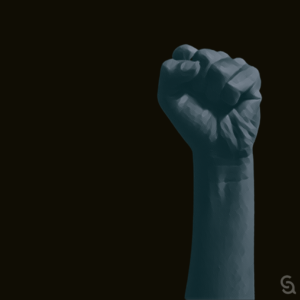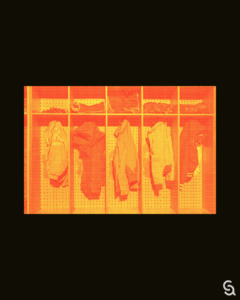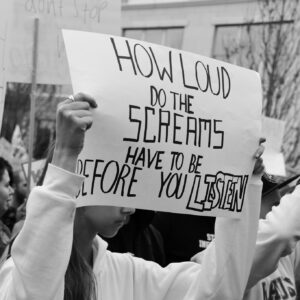Blessed are those who are persecuted because of righteousness, for theirs is the kingdom of heaven. – Matthew 5:10

You’d never suspect that this short, elderly South African man was once considered a threat to national security. But, standing in front of the prison that once held him, he began to recall his experiences as one of many students that rose in protest against the Apartheid regime decades ago. Apartheid authorities banished those young people to Robben Island for their antiracist resistance, where they would suffer soul-crushing abuse alongside a who’s-who of political prisoners, including Nelson Mandela.
He led us into the barracks-style quarters where he and dozens of other students were once incarcerated. He told us how the soldiers would terrorize them, just to pass the time. On more than one occasion, those guards would open the cell door and sic dogs on the youth, for their own entertainment. The youth would fight off the dogs in the name of their own dignity, our guide explained with a smile.
We were told that Robben Island was supposed to be the site where Apartheid claimed victory over the struggle for Black liberation, but the plan backfired. The prison became a concentrated community of the Black revolutionary spirit. Prisoners offered each other spiritual support through friendship; through conversations and communal study, they sharpened their political consciousness together. The leaders of post-Apartheid South Africa were groomed there.
Though Robben Island will always hold memories of the brutality and indignities Apartheid soldiers inflicted on its prisoners, it stands as a monument to the triumph of the human spirit, because former prisoners, like our tour guide, speak of their imprisonment as the Empire’s failed attempt to crush the revolution and their spirits.
I made sure to snag a stone from the grounds of Robben Island before we left, as a reminder of the stories of resilience I heard there. Whenever I see it, it lifts my spirits to remember their victory over their persecutors.
The history of Black people is too often dominated by stories of suffering. Too often, the stories of our righteous resistance to oppression are hidden. The consequences of that type of censorship are dire. It gives people the impression that our ancestors didn’t strongly resist our oppression. Worse: it keeps us ignorant of the stories our predecessors used to liberate themselves–stories that may be instructive to those of us who must struggle for our own liberation today.
For decades, Black activists have taken the month of August to recall the often hidden stories of the Black freedom struggle. Black August, as it’s called, is a season when we remember political prisoners, martyrs, and revolutionary struggles. We study the revolutionary past so that we might more skillfully participate in creating the future.
Christians for Social Action will observe Black August this year by elevating the voices of Black Christian activists in our library. We understand the immeasurable harm that colonial Christianity has done to people of the Black Diaspora. And we commemorate the many Black freedom fighters throughout history who–nevertheless–found a message of liberation in the Christian scriptures as the engine of their revolutionary work. This month, we’re honored to share with our readers the wisdom that contemporary Black Christian activists have shared with us.


